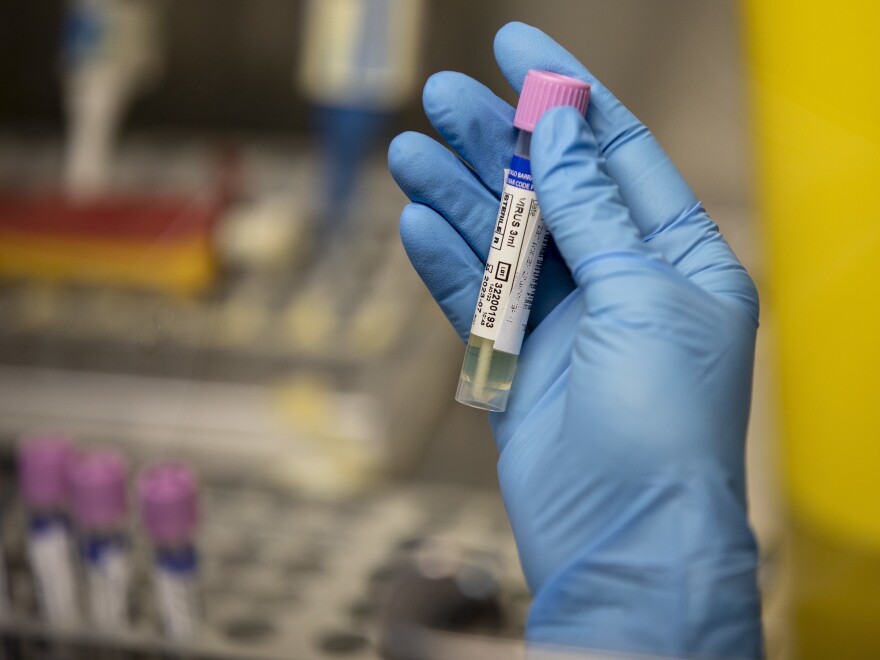The state confirmed 62 cases of monkeypox in Michigan as of Wednesday.
That’s seven more than Tuesday and 25 cases more than Friday’s 37 cases.
“This is not real time data…” said Dr. Natasha Bagdasarian, Michigan’s Chief Medical Executive on Tuesday. “These numbers are updating all the time. So it could be higher than that now but we are expecting to see the numbers of cases of MPV in Michigan go up, as they are going up around the country and of course, around the world.”
How it’s spread
The monkeypox virus, or MPV, can spread to anyone through close, personal often skin-to-skin contact, according to the state health department. This can include:
- Direct contact with MPV rash, scabs or body fluids from a person with MPV. It is believed this is currently the most common way that MPV is spreading in the U.S.
- Through contact with someone with MPV during common activities such as sex, hugging, massaging, kissing and prolonged face-to-face contact
- Touching objects, fabrics (clothing, bedding or towels) and surfaces that have been used by someone with MPV.
- Contact with respiratory secretions.
“There has been a lot of a lot of talk about monkeypox being a sexually transmitted infection, and I do want to highlight… that it is not just spread through sexual contact,” Bagdasarian said.
“It is not just spread through intimate partner contact. It can be spread through household contact from other types of close contact from things like sharing linens and bedding.”
Treatment and vaccines
Bagdasarian said the state is taking a “layered approach” containing MPV and ensuring it does not become endemic in Michigan.
“The first layer of this is broad-based testing,” she said. “So we want to make sure that testing is happening so that we're detecting as many cases as possible. And part of this broad testing, it really requires both education to the general public education to individuals and communities as well as education for clinicians.”
The next layer is treatment, she said. There are no treatments specifically for MPV infections. However, MPV and smallpox viruses are genetically similar, which means that antiviral drugs and vaccines developed to protect against smallpox can be used to prevent and treat MPV infections.
The state is working to obtain an antiviral called T-pox from the Strategic National Stockpile which is used to treat those with or at risk of severe cases.
Michigan has 3,400 doses of the vaccine available.
Bagdasarian said the first of these doses are being administered post-exposure– or “post-exposure prophylaxis.”
Next, doses will be available for “expanded post-exposure prophylaxis,” Bagdasarian said. This is a slightly broader definition that’s for any individual who may have been exposed or individuals with risk factors who could be exposed in the near future.
There are not enough doses to be administered pre-exposure to those who don’t fall in higher risk categories, she said.
Although the vaccine is a two-dose series, the state will not be setting aside second doses, Bagdasarian said. The state will provide second doses when more are available.
“We need to make sure that there is no stigma around this disease, and that people feel comfortable both disclosing their risk factors disclosing activities that could have put them at risk, and that people also don't feel stigma if they are diagnosed with this illness.”
Copyright 2022 Michigan Radio. To see more, visit Michigan Radio.


